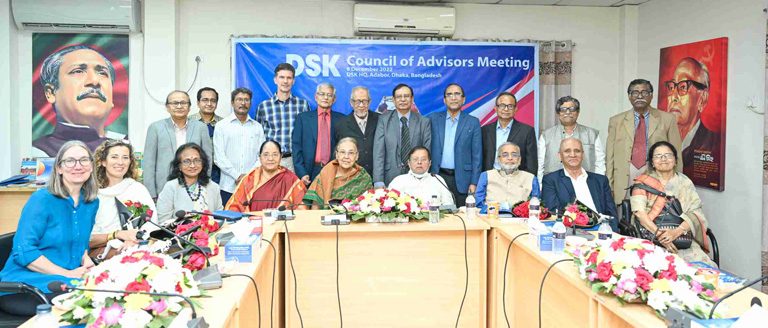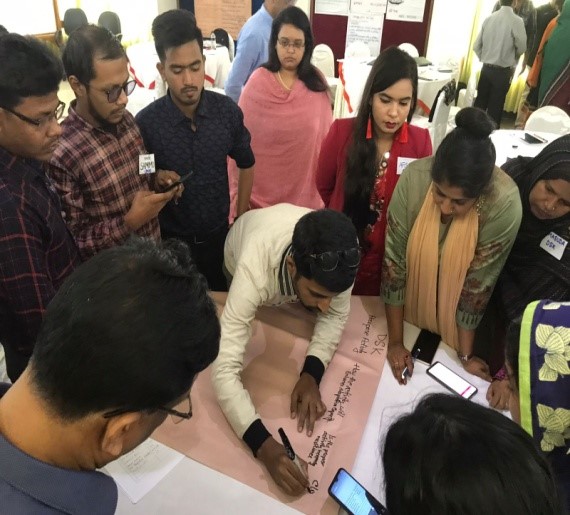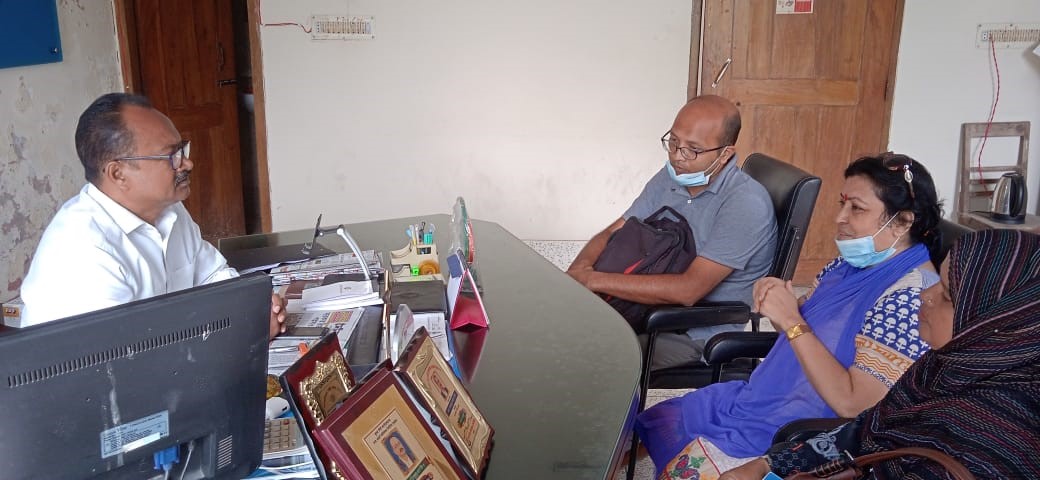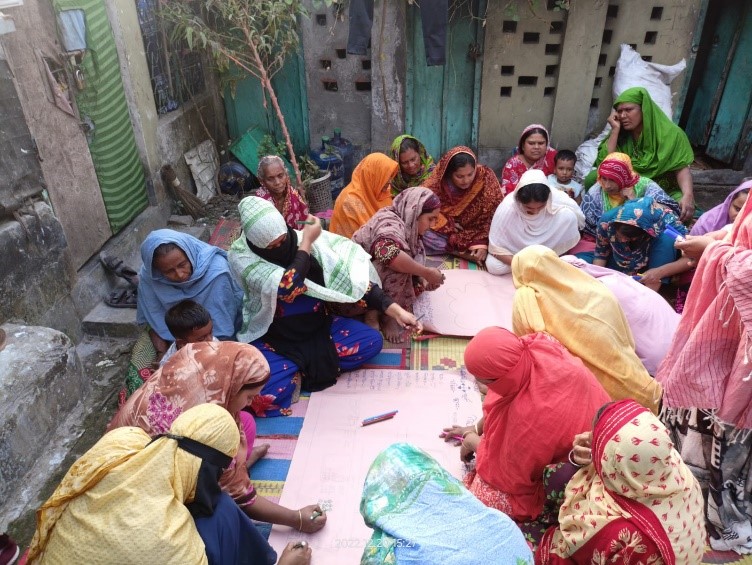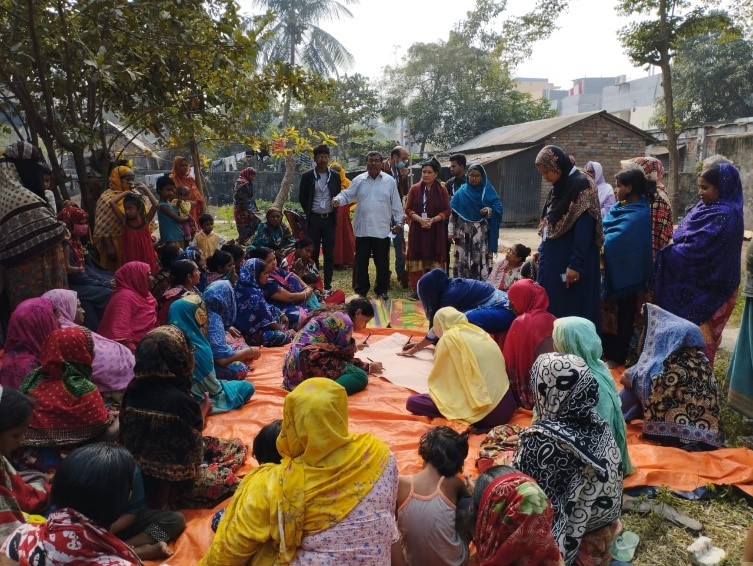Enhancing Resilience, Response and Recovery of Climate Migrants Highly Vulnerable to COVID-19 in Khulna City Corporation
Dushtha Shasthya Kendra (DSK) implementing the Enhancing Resilience, Response and Recovery of Climate Migrants Highly Vulnerable to COVID-19 in Khulna City Corporation Project. The project is funded by the Climate Bridge Fund (CBF). CBF is a trust fund established by BRAC with support from the Government of Germany through KfW. The project purpose is to facilitate a process where 2000 HHs (100 groups) will improve their access to WASH and 2000 HHs (80 groups) organized in self-help groups (SHGs) to continue their organized resilient collective efforts to get out of poverty and vulnerability linked to climate change and Covid-19 using a robust SHG livelihood network and access to WASH as a tool to achieve it.
| Project Duration | Donor | Target population | Implemented Places | Budget |
|---|---|---|---|---|
| 1 Sept, 2022 – 31 Aug, 2024 | Climate Bridge Fund (CBF) | 26500 beneficiaries | Rishipara, Dattabari, Dafadarbari & Baganbari slum under ward no 05, Bastuhara slum under ward no 09, Hafiznagar slum under ward no and Rhisipara slum under ward no 25 in Khulna. | 63,312,000 BDT |
Objectives
- The resilience of vulnerable communities in target KCC slum areas towards COVID-19 and its the consequences is increased (predefined)
- In KCC target slums areas reducing vulnerability and risk of waterborne diseases and C 19 through improving access to Safe Water, Hand Wash and Sanitation hardware’s.
- To decrease health vulnerability of target KCC slum population towards C 19 and waterborne disease infection through promotion and strengthening of protective hygiene behaviors and health awareness campaign.
- To facilitate economic resilience of climate migrants in KCC slums through promotion self-reliance building, promotion of savings, skill-building and market penetration.
Project Activity
- Installation 100 water point for 2000 households through KWASA piped network/ Solar aided submersible water pumps (avoiding multiple perforation and contamination of deep aquifer)
- 506 single pit, double pits or Septic Tank (ST) based appropriate and acceptable Toilets where repaired (190), refurbished/de-slugged (190)/ new installed 120 (20 persons per Toilet, the design will consider MHM, disability friendly) along with hand wash facilities (120) and 810 feet drain constructed to cover the needs of 2000 families.
- MHM session for 150 adolescent group (150*20=2500 participants)
- Water Safety Plan (WSP) for 100 women group (100*20=2000 participants)
- Hand Washing session for Child & Adult group (100*20=2000 participants)
- Formation of 80 Self Help Group (SHG) with 2000 participants of slums dwellers in regular weekly/monthly savings and trained in livelihood skills and market value chain mechanism











